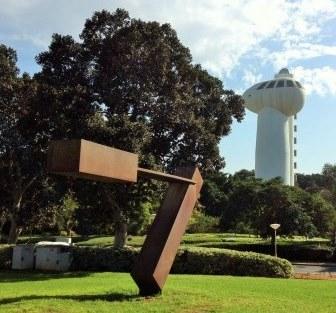The discovery of a Higgs boson, with a mass around 125 GeV, at the LHC is a great victory for the Standard Model (SM). With its minimal scalar sector of electroweak symmetry breaking, the SM at short distances, well below the proton radius, is a complete weakly coupled theory. Even though the SM cannot explain several experimental observations such as neutrino masses, the baryon asymmetry of the universe and the origin of dark matter, one cannot deduce an energy scale at which the SM would be forced to be extended (with the exceptions of the Planck scale and the Landau pole of the hypercharge force).
However, the fact that the Higgs mass is subject to additive renormalization, implies that the electroweak scale is unnatural. All the known concrete solutions to this UV sensitivity problem require new dynamics characterized by energy scale close to the weak scale. A simple possibility to stabilize the electroweak scale in a controlled manner is to add some new particles with the same gauge quantum numbers as the SM ones. Current bounds on the top partner masses are of order of 700-800 GeV.
While these bounds are fairly strong, they are not bullet-proof and are only in moderate tension with naturalness. The most relevant question amidst the "LHC battle for naturalness" is how we are going to discover or extend the bounds on the partners both in terms of (i) mass reach; and (ii) robustness. These two criteria can possibly direct us to where the theoretical, phenomenological and experimental effort should be made.
One can define two "mini-frontiers" for the battle for naturalness at the high pT LHC experiments. First, the "mini" energy frontier, where the effort is focused on searching for ultra massive partners, which is dominated by the highest center of mass energies that can be reached by the LHC. Second, the "mini" intensity frontier, where the effort is focused on searching for partners with mass below or near the current bounds, however, when the partners are elusive to current searches. The physics of these two frontiers is qualitatively different both in terms of their phenomenology and in the corresponding necessary experimental effort. The linkage with the genuine intensity frontier, especially in view of the results from the LHCb collaboration, is to be discussed as well.
This workshop will bring together experimental and theory experts from the various frontiers relevant to the physics of naturalness, to cover the theoretical, phenomenological and experimental aspects of the above basic questions, in the context of the LHC. We expect to cover the status and the implications of the current results from the first run of the LHC and will discuss in length the search strategies and reach for the next LHC run expected to start in 2015. In addition, as the LHC reach for top-partners discovery is limited to probing scales below the 2 TeV region we also plan to discuss what kind of experimental effort beyond our current horizon can extend our reach in the study of the physics of naturalness. In particular we plan to discuss the scientific potential and significance of a future 100 TeV hadron collider.
All the speakers and panels' members are by invitation only.
The main workshop is preceded by a 2-day satellite workshop. For more details on that workshop (including timetable), see https://indico.cern.ch/event/339660/
Financial support:
- TOPCHARM Consolidator ERC Grant
- WIS CSP program
- The I-CORE Program of the Planning and Budgeting Committee and The Israel Science Foundation (grant No. 1937/12)
- The Maurice and Gabriella Goldschleger Center for Nanophysics, Weizmann Institute
- Faculty of Physics, Weizmann Institute
- Department of Particle Physics and Astrophysics, Weizmann Institute
Choose timezone
Your profile timezone:




